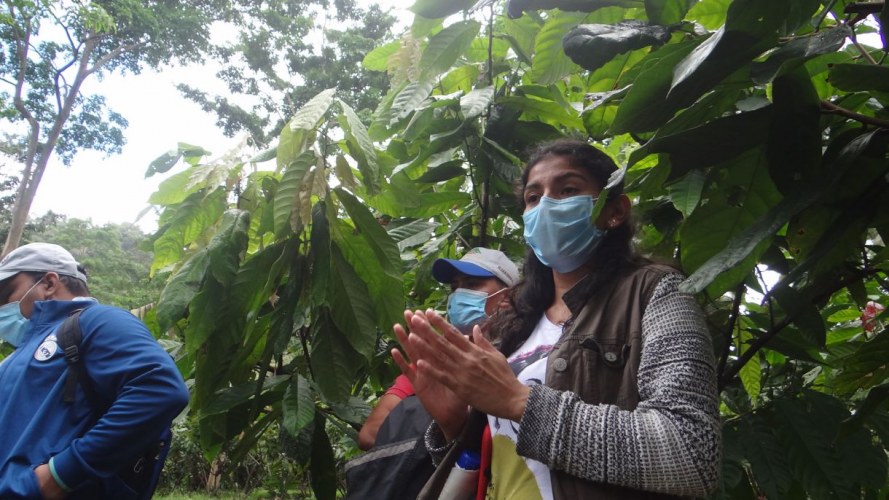Tenacity and resilience are words that describe Yamileth Torrez. At the age of 27, she is a survivor of Covid-19, the shocks of two hurricanes and losses to her income from cocoa production due to the effects of climate variability.
She and her family produce cocoa in the municipality of Rancho Grande, Matagalpa, 211 kilometres from Nicaragua's capital. Although she studied agronomy, "I only knew the generalities," she says. This changed when she was offered a job as a technician in the cocoa and coffee farmers' organisation "Rios de Agua Viva" located in the same community.
At the cooperative, she started as an internal inspector, gathering information from cocoa producers.







